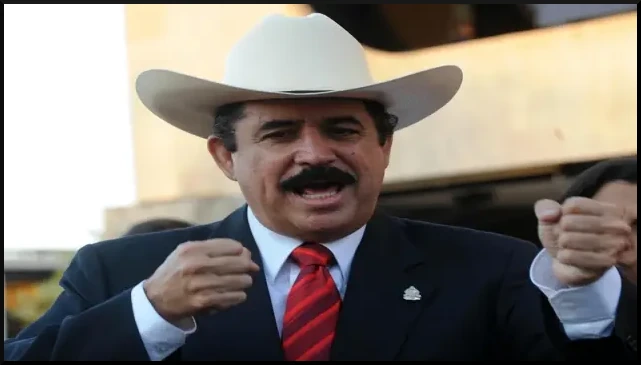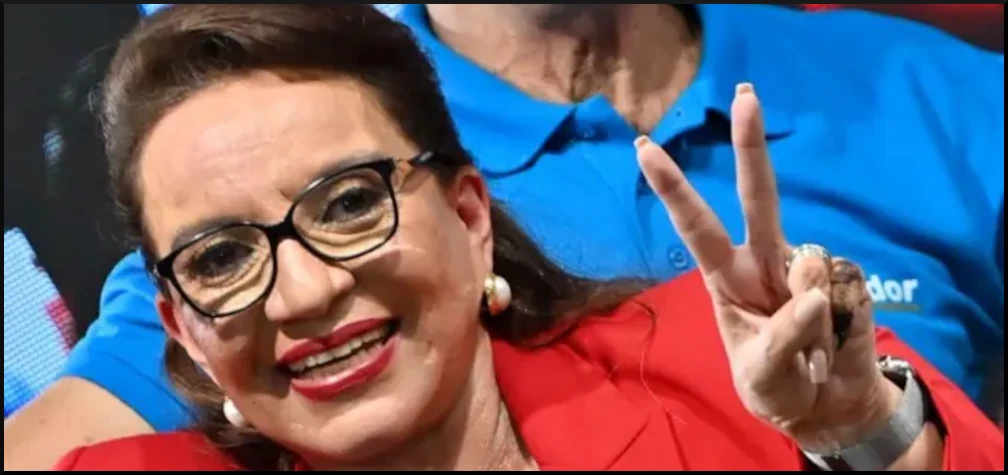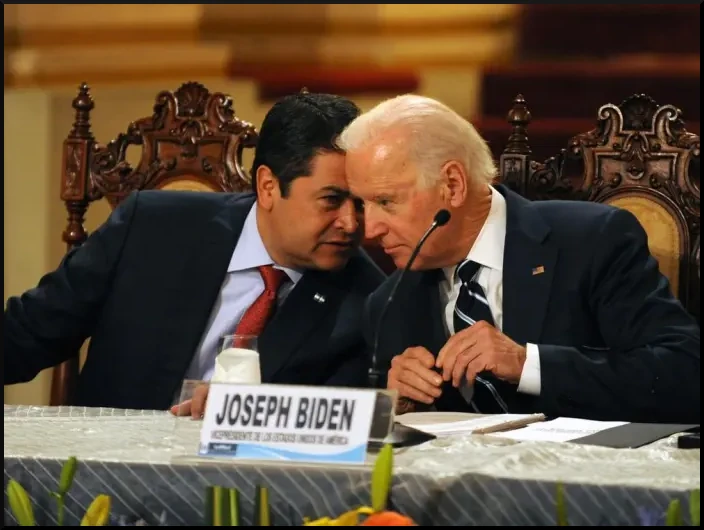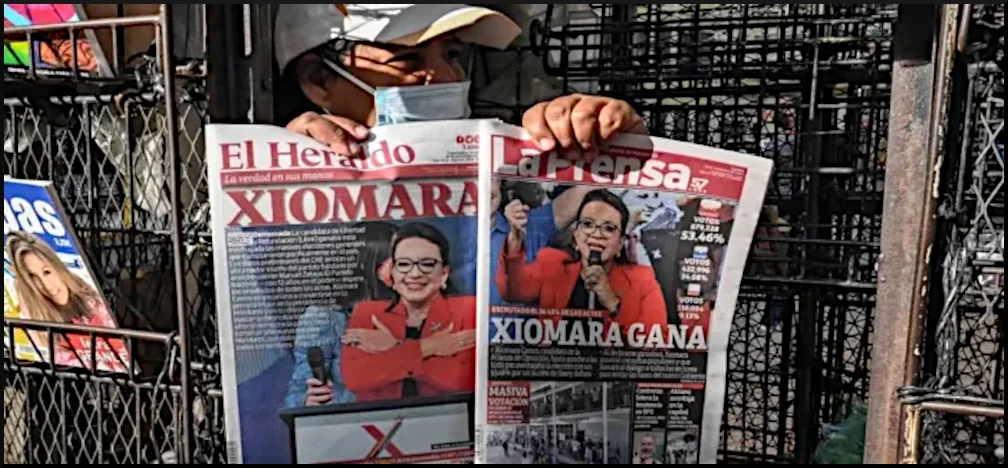by Jeremy Kuzmarov, published on Covert Action Magazine, December 1, 2021
Another exciting win in Latin America. However, the vulnerabilities of the moment shadow the bright possibilities. [jb]
Honduras’-twelve-year nightmare prompted by a U.S.-backed coup came to an end this week with the election of Xiomara Castro as the country’s new president, with 68 percent voter turnout.
Thousands of Hondurans poured into the streets the day after the vote, shooting fireworks and singing “J.O.H., J.O.H., and away you go,” a reference to the deeply unpopular outgoing President Juan Orlando Hernández.
At the victory celebration. Castro proclaimed:
She continued:
“we’re going to build a new era. Out with death squads, out with corruption, out with drug traffickers, out with organized crime. We’re going to transform the country. No more poverty. No more misery.”
Castro is the wife of José Manuel Zelaya, Honduras’s president from 2006 to 2009, who was overthrown in the 2009 coup, and served as Castro’s campaign manager.

Miguel Angel, a political activist in his 20s who fled Honduras after the coup, stated that “Zelaya was the best president Honduras had ever had”; one who “followed through on his campaign promises.” The latter proved to be his undoing as the wealthy “didn’t like the fact that a man of power gave a plate of food to the poor.”
Improved Prospects
With Castro now in charge, Honduras’s prospects are suddenly much better—the poor may indeed get a plate.
Castro campaigned on a platform of cleaning up corruption, adopting a new constitution, loosening restrictions on abortion, and adopting more social democratic policies compared to the neoliberal austerity measures that have devastated Honduras since the coup.

Al Jazeera correspondent Manuel Rapalo reported from Tegucigalpa that Castro had won the election because
Honduran scholar Suyapa Portillo of Pitzer College said that many voted in the election for the “dead”— those killed in the 2009 coup and subsequent state repression that was financed considerably by the U.S. through security assistance programs and under the War on Drugs.
A Government of Criminals
Honduras’ departing president Juan Orlando Hernández has been accused by a prosecutor in the Federal District Court of Manhattan of protecting Honduras’s drug traffickers and helping them to flood the U.S. with cocaine.

Many of the drug shipments—which had Tony’s initials emblazoned on his own brand—were overseen by the former Honduran chief of National Police, Juan Carlos Bonilla Valadares (aka “El Tigre”), whom Tony said was “very violent,” and “trusted with special assignments, including murders.”[1]
“El Tigre” long enjoyed U.S. support even as evidence of human rights atrocities and drug-running mounted against him.
Tainted Candidate
Juan Orlando Hernández’ designated successor, Nasry “Tito” Asfura, conceded defeat late on Tuesday with 34.1% of the vote, compared to Castro’s 53.4%—with 52% of the vote recorded.
Asfura’s candidacy was tainted by his link to influence peddling in Costa Rica in the Panama Papers, and by his being named in a government investigation into embezzlement of more than one million dollars of city funds in Tegucigalpa where he was mayor.
The charges stemmed from an investigation into a complex series of transactions that ended with tax funds shunted to personal accounts, according to court documents.
Reversal of Anti-Historic Counteroffensive
Venezuelan leader Hugo Chávez characterized the 2009 coup against Zelaya as part of a “retrograde and anti-historic counter-offensive by the U.S. empire,” whose aim was to “roll back the union, sovereignty and democracy of our continent.”
The Center for Economic and Policy Research in 2017 concluded that Gross Domestic Product (GDP) dropped by two percent and unemployment rose from 3 to 7.4 percent in the years after the coup in Honduras, while the women’s underemployment rate more than doubled.
Hondurans complained that the price of beans had risen so much in this period that only the rich could afford to eat them.
The social and environmental cost of the government’s policies was borne most by indigenous groups like the Moskitia, Miskitu and Garifuna, whose waterways and land were threatened by a 2013 agreement granting the BG Oil Group, subsequently bought over by Shell, oil and gas exploration rights off the Honduran coast.
Castro’s election victory could prove chimeric if the Nationalist Party retains control of the Congress and blocks her major legislative initiatives.
The State Department issued a statement on Tuesday expressing optimism about the high voter turnout and asserting its willingness to work with Castro—though could easily turn against her if her policies turn left.
The majority of Hondurans, nevertheless, are feeling better about their future prospects today than they had been before the election.
- In October, 2019, eight days after Hernández was convicted, his former business partner who had cooperated with the DEA, Nesry López Sanabria was shot and stabbed to death, by assassins who had been allowed to breach an area of the maximum-security Honduran prison where he was being held. Six weeks later, his lawyer was killed. Three days after that, the warden of the prison was killed, too. ↑
*Featured Image: [Source: Aljazeera.com]
Jeremy Kuzmarov is Managing Editor of CovertAction Magazine and author of four books on U.S. foreign policy, including Obama’s Unending Wars (Clarity Press, 2019) and The Russians Are Coming, Again, with John Marciano (Monthly Review Press, 2018). He can be reached at: jkuzmarov2@gmail.com
